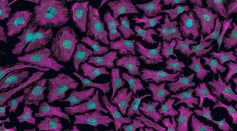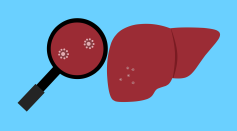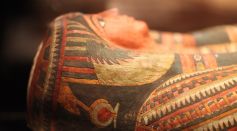Tags: Cancer

Parkinson's Disease Detected by Woman Through Sense of Smell; Can Odor Also Identify Cancer, Diabetes?

Novel Electrochemical Biosensor Shows High Sensitivity on Cancer Biomarker for Early Diagnosis
Obstructive Sleep Apnea Sufferers More At Risk of Cancer, Other Health Conditions, According to 3 Studies

T Cell Can Accurately Distinguish Antigen For Strong Immune Response, More Effective Cancer Immunotherapy [Study]

Mother Warns Parents of a Rare Fatal Cancer After Baby Develops Bizarre Symptom

Cancer Cells Do Not Waste Glucose as Previously Thought, New Study Claims
No Food Intake for 24 Hours Eliminates Heart Muscle Damage Increasing Survival of Chemotherapy Patients

Brain Tumors, Other Hard-to-Treat Cancers May Finally be Treated with Postoperative Therapy for Glioblastoma Patients

More Men Have Higher Risk to Get Cancer Compared to Women, Here’s Why

Locust Can Detect Cancer From a Healthy Human Cell and May Speed Up Standard Screening [Study]
High Daily Insulin Doses in Type 1 Diabetes Patients Increases Risk of Cancer, Especially in Women [Study]

Most Liver Cancer Cases in the US Are Linked to Hepatitis [Report]

Diabetes Breakthrough: Researchers Restore Insulin Production Using Drug Available in the Market

World's First Known Pregnant Mummy From 1st Century BCE Likely Had Cancer, Researchers Claim

Human Teardrops Used in New Technology That Can Detect Certain Illnesses Like Eye Disease, Diabetes, Cancer, Among Others
Bacteria-Based Microrobots Developed to Help Battle Cancer

Cancer Drug Under Investigation Unexpectedly Triggers Spinal Cord Recovery in Mice Models

Regulatory Molecule Responsible for Epithelial Cells Becoming Invasive and Cancerous, Study Reveals

Groundbreaking Cancer Vaccine Made From Patient's Tumor Produced Hopeful Clinical Trial Results

Largest Collection of Prostate Cancer Biopsy Images Learned by AI Algorithm to Assist Urologists on Early Diagnosis
Most Popular

Orionids Meteor Shower Happening Next Week: Where and When To Catch the October Light Show's Peak

Texas Official Shot Down Siren Flood Alert, Complaining That It Might Go Off 'In the Middle of the Night': Report

Nvidia's Jetson Thor Could Make Humanoids Smarter Than Ever

Hellfire Missile Video Reveals MQ-9 Reapers Being Used for Aerial Combat





